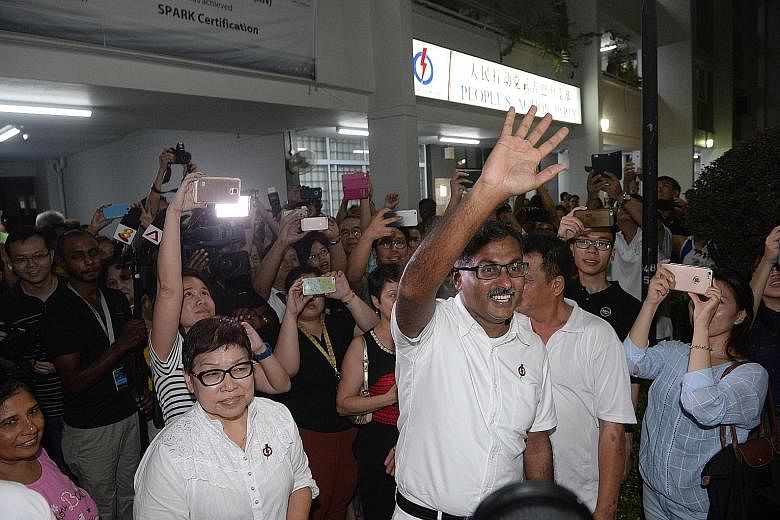After the hard-fought campaigns of the September 2015 General Election, this year was meant to be a break from rallies, walkabouts and voting. But in March, the personal indiscretions of a People's Action Party (PAP) backbencher thrust a constituency long seen as a safe seat for the party into the spotlight.
Bukit Batok MP David Ong abruptly resigned his seat after an alleged extramarital affair with a grassroots activist surfaced, triggering a by-election that reignited election fever just six months after the general election ended.
Given the reputation of by-elections as fertile ground for the opposition, the development threatened to deal a setback to the PAP, which was riding high on its stronger- than-expected mandate of 69.9 per cent of the national vote.
And it must have been especially painful for the PAP, given that Mr Ong was the second MP in four years to resign because of a personal scandal. Former Parliament Speaker Michael Palmer did so in December 2012. A third MP, the Workers' Party's Yaw Shin Leong, was sacked in February 2012 for not coming clean about an alleged affair, and lost his seat.
The Bukit Batok contest pitted the PAP's Murali Pillai - a familiar face in the constituency, having been a volunteer there for 16 years - against Singapore Democratic Party (SDP) chief Chee Soon Juan, whose party contested the seat in GE 2015 and who was making his fifth bid at a seat in Parliament.
For Dr Chee, it was a chance to hasten his political comeback. Last year, his first election since 2001 after getting discharged from bankruptcy, he shed his combative image to adopt a more moderate tone. He continued to put his confrontational style of politics behind him, even pledging not to attack the PAP over Mr Ong's indiscretion.
In Mr Murali's case, the PAP - which long held that race does play a role at the polls - moved to field an ethnic minority to contest a single-seat constituency.
On May 7, Mr Murali won 61.2 per cent of the vote in a constituency that had a higher proportion of Chinese residents than the national average. His convincing win against an ethnic Chinese candidate was cheered by some observers as a sign that Singaporeans were less prone to basing their vote on skin colour, although the PAP's vote share slid by 12 percentage points from that in GE 2015.
The win also challenged another assumption: The by-election effect. By-elections are seen as risky for the ruling party, with voters more willing to support the opposition, given that there is no danger of inadvertently voting out the government.
Though Dr Chee managed a 12.4 percentage point swing from last year's general election result in Bukit Batok, when another SDP candidate contested there, he fell short of a win, suggesting that the by-election effect has diminished.
Indeed, it was the first time the PAP won a by-election in a single seat since 1979.
The result was also an outlier, given global developments in which voters repudiated political establishments, rejected expert advice and backed controversial figures or proposals - as Brexit, and the election of Mr Rodrigo Duterte in the Philippines and Mr Donald Trump in the United States showed.
But in Bukit Batok, about 24,000 voters chose continuity with the party in power over radical change promised by a firebrand challenger.


